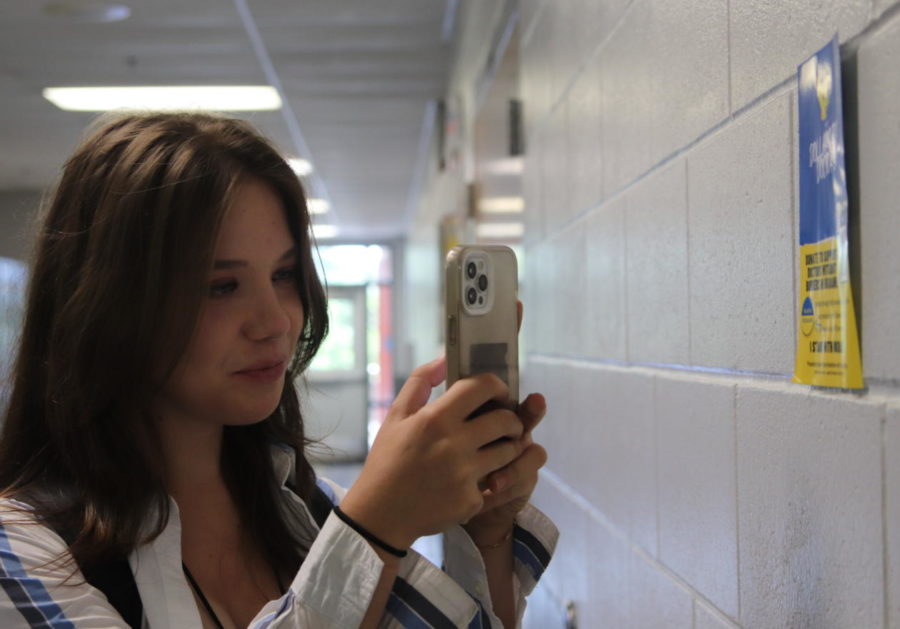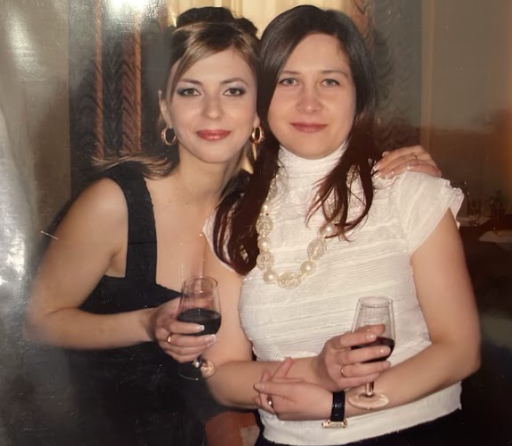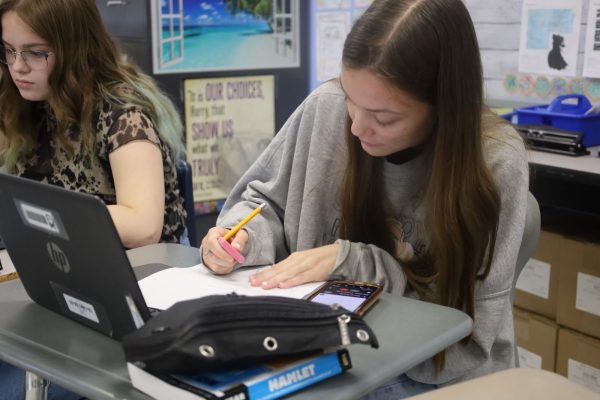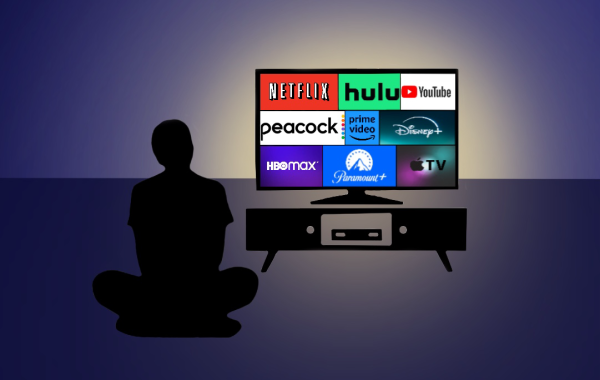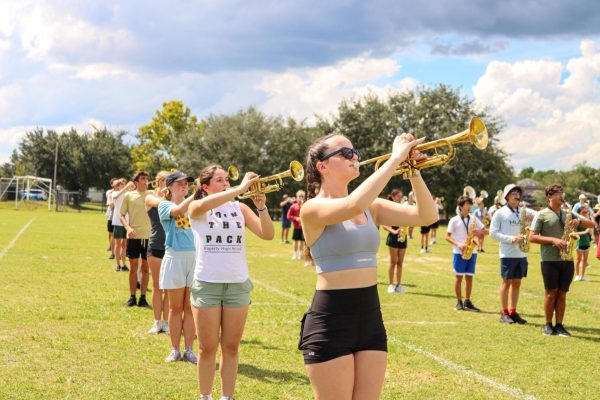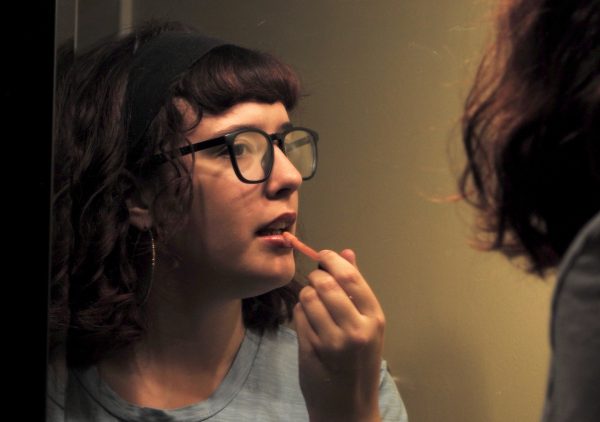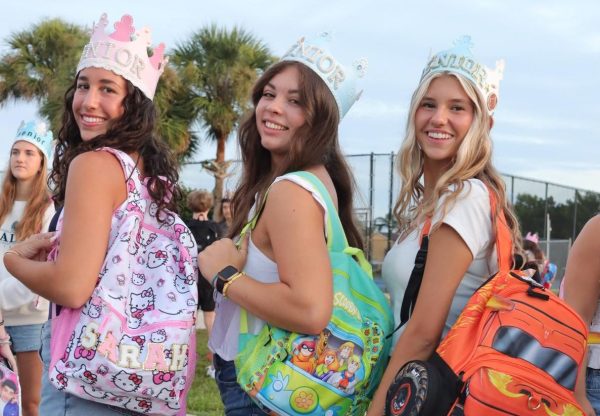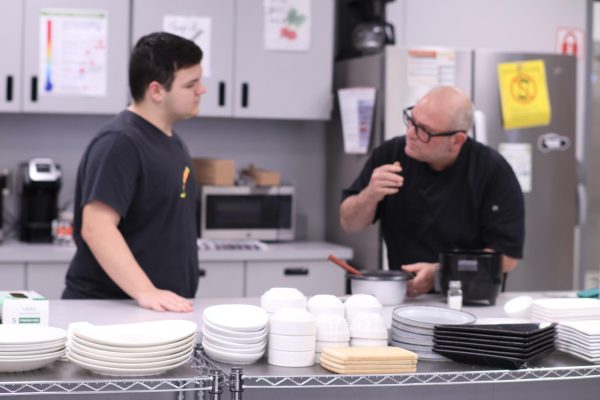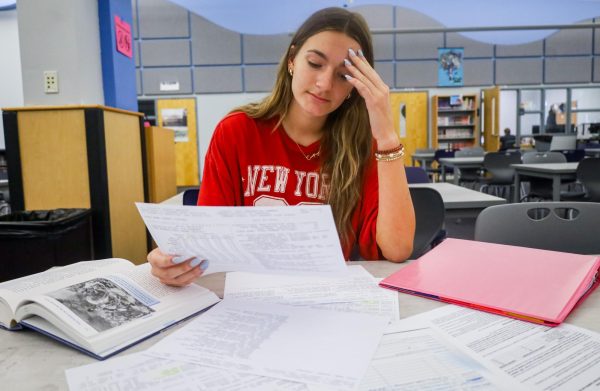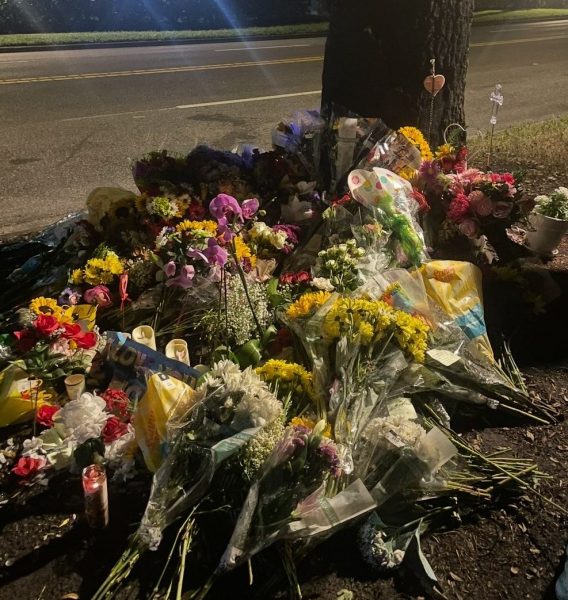War on the homefront
photo by Sophia Canabal
Junior Karina Ostashchuk scans a QR code to donate to Dollars for Doctors, a fundraiser started by the Young Republicans and Young Democrats to provide medical aid to Ukraine. As a Ukrainian, Ostashchuk has also participated in food drives and anti-war rallies across central Florida.
When junior Karina Ostashchuk first came to Florida during the summer of 2019, her future was uncertain: her family had secured neither a job nor a home before the move. Surrounded by suburbs dotted with palm trees and beachfront houses, a view much different from the cold, arid Ukrainian landscape, she was utterly overwhelmed.
“My parents wanted to live somewhere that was always warm, but it’s super hard [to adjust here],” Ostashchuk said. “At first I was like, ‘why is everything so weird?’ Everything was super different, even car doors.”
In 2015, a year after Ukraine’s Maidan Revolution, Ostashchuk’s family was forced to choose between their home country and a safer future in America. They chose the latter, leaving Ukraine four years later to start fresh in the United States.
“People were poor, everyone had nothing, there was no money, so my parents said ‘There is no future in this country,’” Ostashchuk said. “But [moving] was so sad because I had my family and friends [in Ukraine].”
Ostashchuk struggled to adjust. Being one of the only Eastern Orthodox students at her school, she lacked a community with which she could celebrate holidays like Orthodox Easter and Orthodox Christmas. Ostashchuk also had to overcome the language barrier that stood between her and her classmates, having only spoken Ukrainian and Russian prior to the move.
“It was hard because I didn’t know English at all. When people asked me what my grade was, I would say I’m 15,” she said.
Over the next three years, Ostashchuk would gradually settle into her new home, enrolling in English ESOL and making friends within her community. Then, just as her parents announced that they would be visiting Ukraine during their summer vacation, she received startling news. On Feb 24, Russian president Vladimir Putin authorized a “special military operation” in Ukraine, an invasion that would further disturb the country’s teetering democracy.
“We started crying, and I couldn’t sleep because I didn’t know what would happen,” Ostashchuk said. “I still have family there.”
Ukrainians are currently enduring heavy fighting in eastern cities like Mariupol, Izium and Kharkiv, but Ostashchuk’s grandmother, her only relative that remains in Western Ukraine, still suffers the effects of war, as she has had to leave her home during evacuation drills almost daily.
“The last [few] months, everybody [said] it didn’t look good. They were like, ‘I think a war is going to happen,’” Ostashchuk said. “[My family] waited [to leave for] a long time because they didn’t know if [the war] was going to stop. I get so scared for my family. I hope everything will be alright and that they can leave Ukraine..”
The remainder of Ostashchuk’s family—those who chose to flee their hometown after the start of the war—joined 4.3 million other Ukrainians displaced in neighboring countries. Although they are oceans apart, she and her family have still found ways to support their relatives from within the U.S, recently attending a rally in Lake Eola, Orlando and donating to local food drives. Aside from her own efforts, Ostashchuk has also witnessed overwhelming support for Ukraine across social media. In contrast with the crisis of 2014, the current conflict has received extensive coverage across every major news corporation, and the tag “#standwithukraine” has accumulated 998,000 posts on Instagram alone. Locally, Young Republicans and Young Democrats clubs recently held a fundraiser that yielded over $1,000 to donate to Doctors Without Borders, an organization that is currently providing medical aid to victims of war in Ukraine.
“I don’t want America to also be impacted and get into war, but to help from afar,” Ostashchuk said. “I think [awareness] is good- because more people can know about the problem and at least help somehow.”
Your donation will support the student journalists of Hagerty High School. We are an ad-free publication, and your contribution helps us publish six issues of the BluePrint and cover our annual website hosting costs. Thank you so much!


